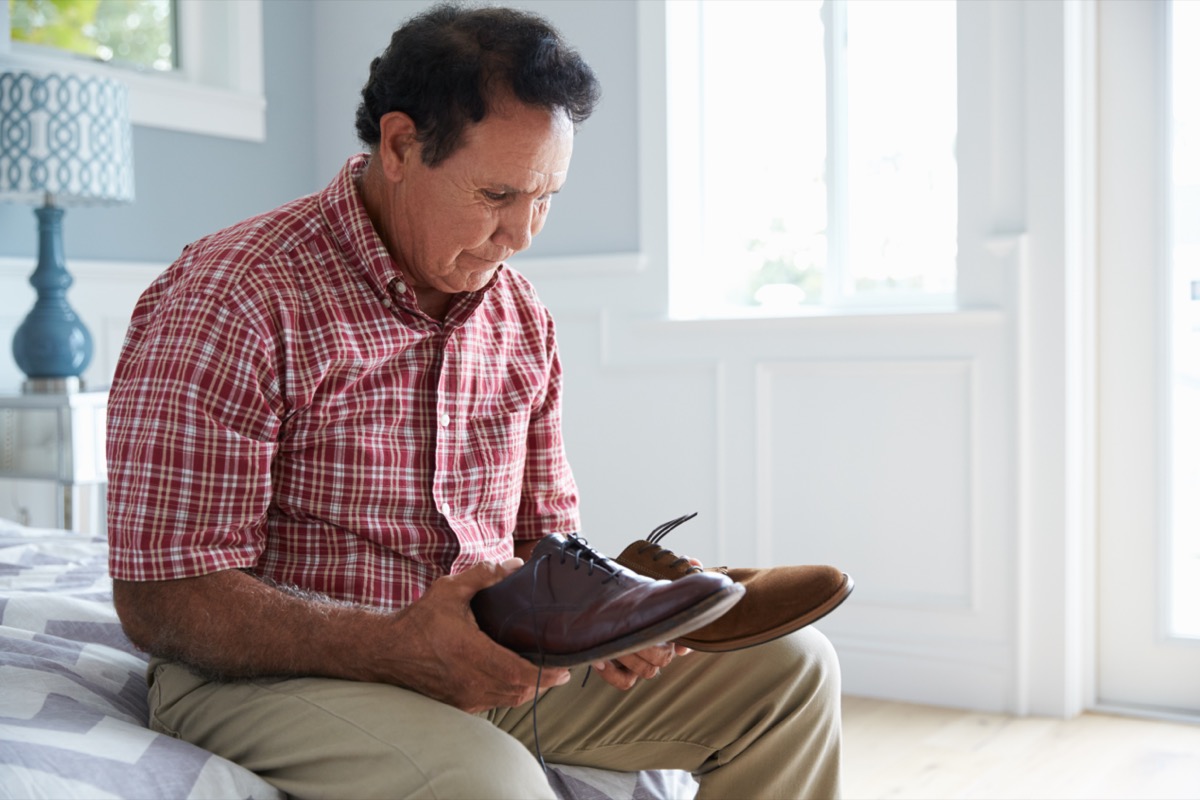Dementia is one of the most feared developments of aging. And it’s increasingly common. But as the saying goes, knowledge is power—and it’s also the case with this insidious disorder. Although dementia is a progressive disease, and there is no cure at present, identifying it early gives doctors the chance to slow its progression and extend quality of life. The key to this early detection: Recognizing one of the most common symptoms. Read on to find out what it is—and to ensure your health and the health of others, don’t miss these Sure Signs You’ve Already Had COVID.
Dementia is the term for many disorders that cause changes to memory, thinking, and personality. These interfere with a person’s ability to function. Alzheimer’s disease is the most common form of dementia; at least 5 million Americans are affected.
About 50 million people are living with dementia worldwide. That number is expected to triple by 2050, as the population ages and people live longer.
RELATED: The #1 Reason for Obesity, According to Doctors

Memory problems are typically one of the first signs of dementia. Chief among them: Someone with dementia may forget where they left certain objects, such as their keys.
All of us misplace things from time to time. But what separates ordinary forgetfulness from that potentially caused by dementia is the ability to retrace your steps to find things you’ve misplaced. When that ability fades, it could be indicative of dementia.
RELATED: Sure Signs You’re Lacking Magnesium, Say Health Experts

“A person living with Alzheimer’s disease may put things in unusual places,” says the Alzheimer’s Association of America. “They may lose things and be unable to go back over their steps to find them again. He or she may accuse others of stealing, especially as the disease progresses.”
RELATED: I’m a Virus Expert and Here’s How to Not Catch COVID

According to Scott Kaiser, MD, a board-certified geriatrician and director of geriatric cognitive health at Providence Saint John’s Health Center in Santa Monica, California, other symptoms of dementia can include:
- Language difficulties, such as trouble finding the right words or communicating generally
- Visual/spatial problems, such as getting lost while driving
- Trouble solving problems and completing mental tasks
- Difficulty organizing and planning
- Problems with coordination or walking
- General confusion, including poor orientation to time or place
- Personality changes, such as depression, anxiety, or mood swings
RELATED: The #1 Cause of Diabetes, According to Doctors

If you or someone you know is experiencing these symptoms, “It’s important to pursue a thorough evaluation to identify such concerns and address them,” says Kaiser. “There are many medical conditions and other factors which can cause reversible memory loss.” These can include insomnia, stress, anxiety, and depression. The only way to known is to get any concern checked out. And to get through this pandemic at your healthiest, don’t miss these 35 Places You’re Most Likely to Catch COVID.